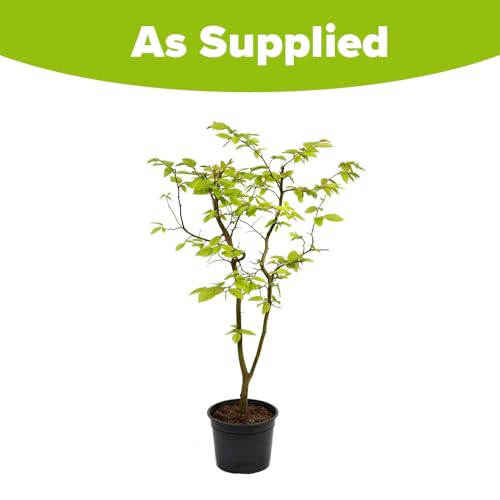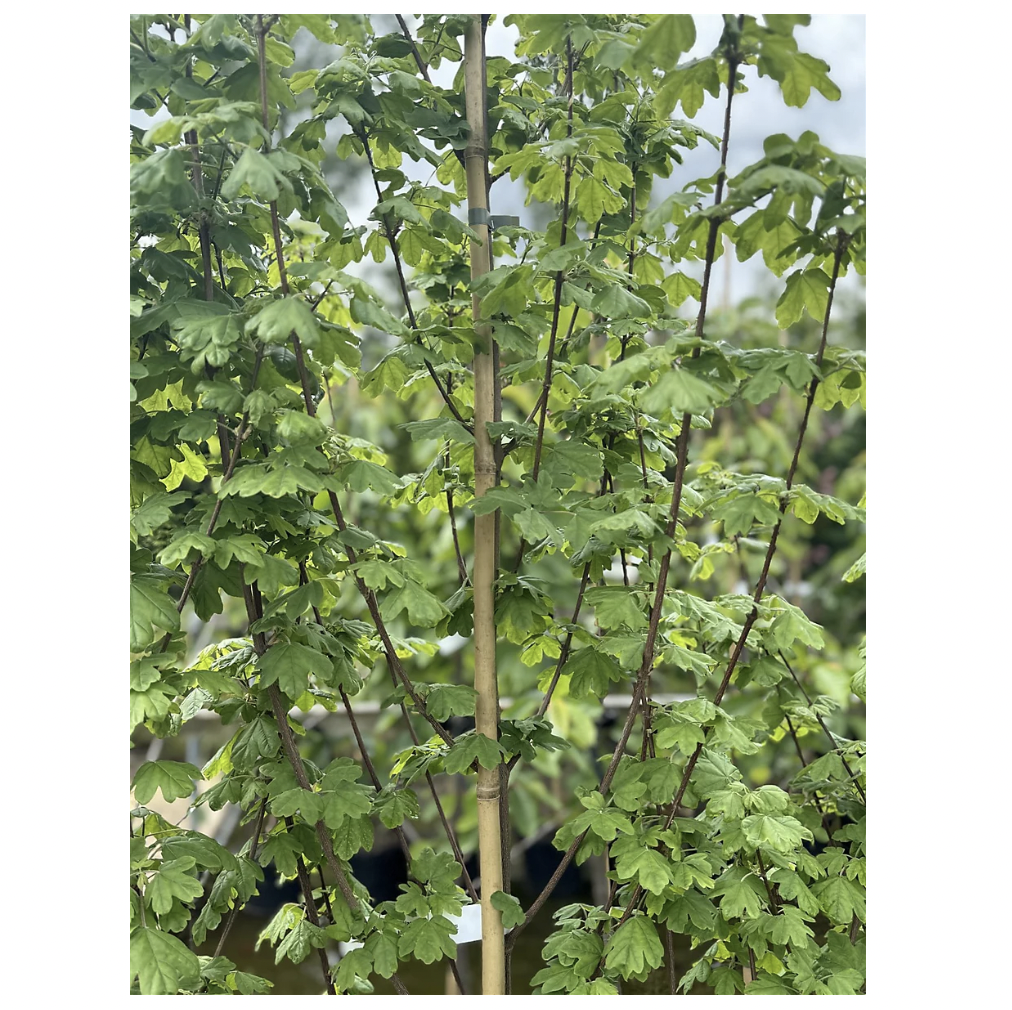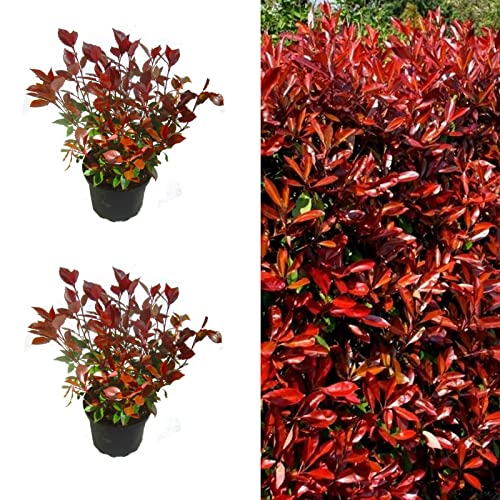6 Trees That Landscape Designers Will Never Plant When They're Trying to Make a Garden More Private
Looking to create a more secluded outdoor space? These are the trees to avoid that won't actually help screen your garden from neighbors

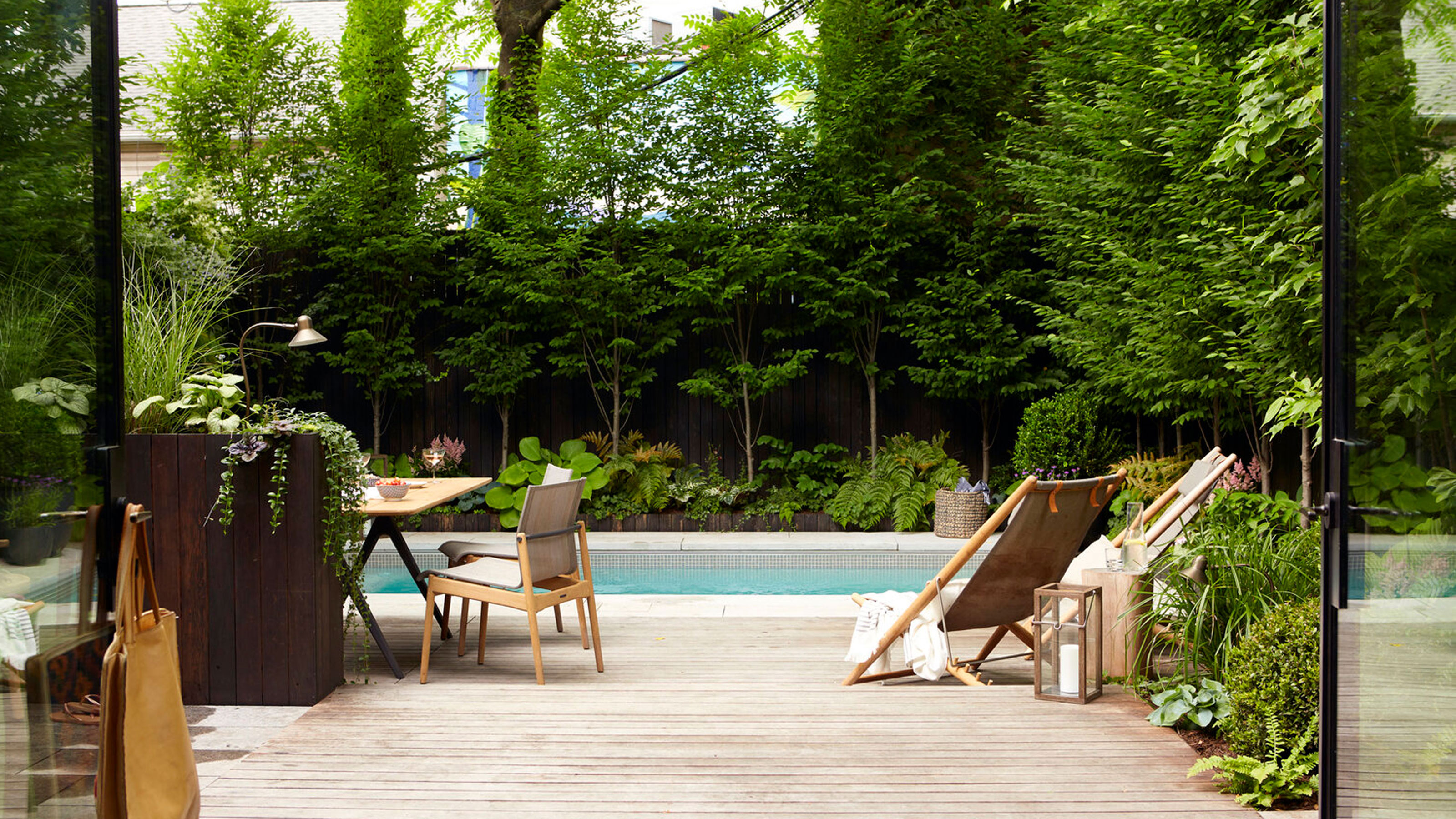
If there's one thing we all want from our garden, it's a bit of extra privacy, and where fencing fails, trees prevail. Screening your outdoor space with a blanket of dense foliage is a great way to shield your backyard from prying eyes. And yet, not all trees are equal in the screening they provide, so there are certain varieties you should steer clear of if privacy is your top priority.
Strategically landscaping your garden with the best trees for privacy is a wonderful, natural way to veil your space. Beyond offering a living privacy screen, a perimeter of trees offers shade, noise reduction, and beautiful visual appeal (all while inviting biodiversity into your garden, too). Choose a tree that's too sparse or slow-growing, however, and privacy will be out of the picture.
The trick isn't simply knowing what tree varieties offer the thickest, densest foliage — there are also a host of planting techniques you can use to manipulate trees so that they're better at shielding your property. "For example, folks may not realize it, but hedges are actually just a row of trees that are then pruned and sheared into a hedge shape," says Kaustubh Deo, President of Blooma Tree Experts.
To help you cultivate a garden with a natural privacy screen, we asked landscapers and arborists which trees don't work for the job and what to use instead for a more secluded outdoor space. Here's what they had to say.
1. Italian Cypress
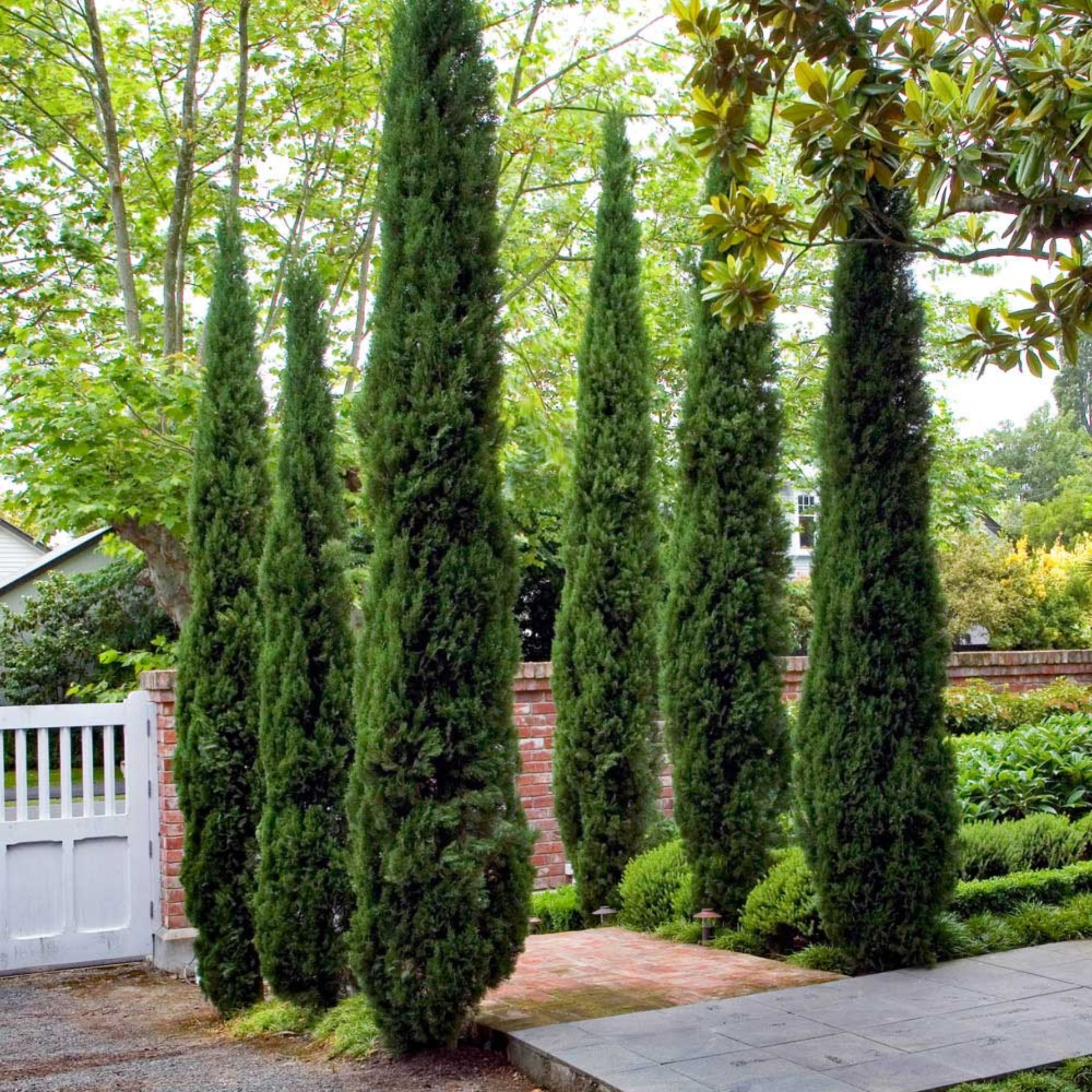
Cypresses are popular choices for tree landscaping ideas. Most varieties are evergreen conifers, meaning their dense, scale-like branches offer dense foliage all year round. They're also extremely versatile (used for hedging, wind breakers, or even topiary) and they're generally fast-growing and drought-tolerant, too.
The Italian cypress (also known as the Mediterranean cypress) is a common variety known for its height and cone-like shape. Until this point, it may sound like the perfect privacy tree, but it's precisely this distinctive silhouette that makes it so impractical for screening.
The reason — says Andy Wu, founder of Backyard Oasis — is that it's too thin to actually screen your space. "It's tall and narrow, so it's not very good for keeping people out since it's like standing behind a lamppost," he says. "Instead, go with something like Arborvitae. It's dense, broad, and evergreen — a living wall basically that actually works."
The Livingetc newsletters are your inside source for what’s shaping interiors now - and what’s next. Discover trend forecasts, smart style ideas, and curated shopping inspiration that brings design to life. Subscribe today and stay ahead of the curve.
Choose instead: Less columnar and more pyramid-like, Arborvitae trees offer similar dense, textured foliage but with greater width than cypresses, which makes them the preferred tree for privacy.

Andy Wu is the Founder of Backyard Oasis, a leading online retailer specializing in premium backyard furniture and equipment, including storage sheds, greenhouses, pergolas, gazebos, and playsets. Based in Atlanta, Georgia, Andy has over 20 years of experience in outdoor design and gardening, starting with his first backyard project in 2003. Frustrated by the lack of quality options at local stores, he founded Backyard Oasis to provide homeowners with a one-stop shop for durable, high-quality outdoor solutions.
2. Paper Birch
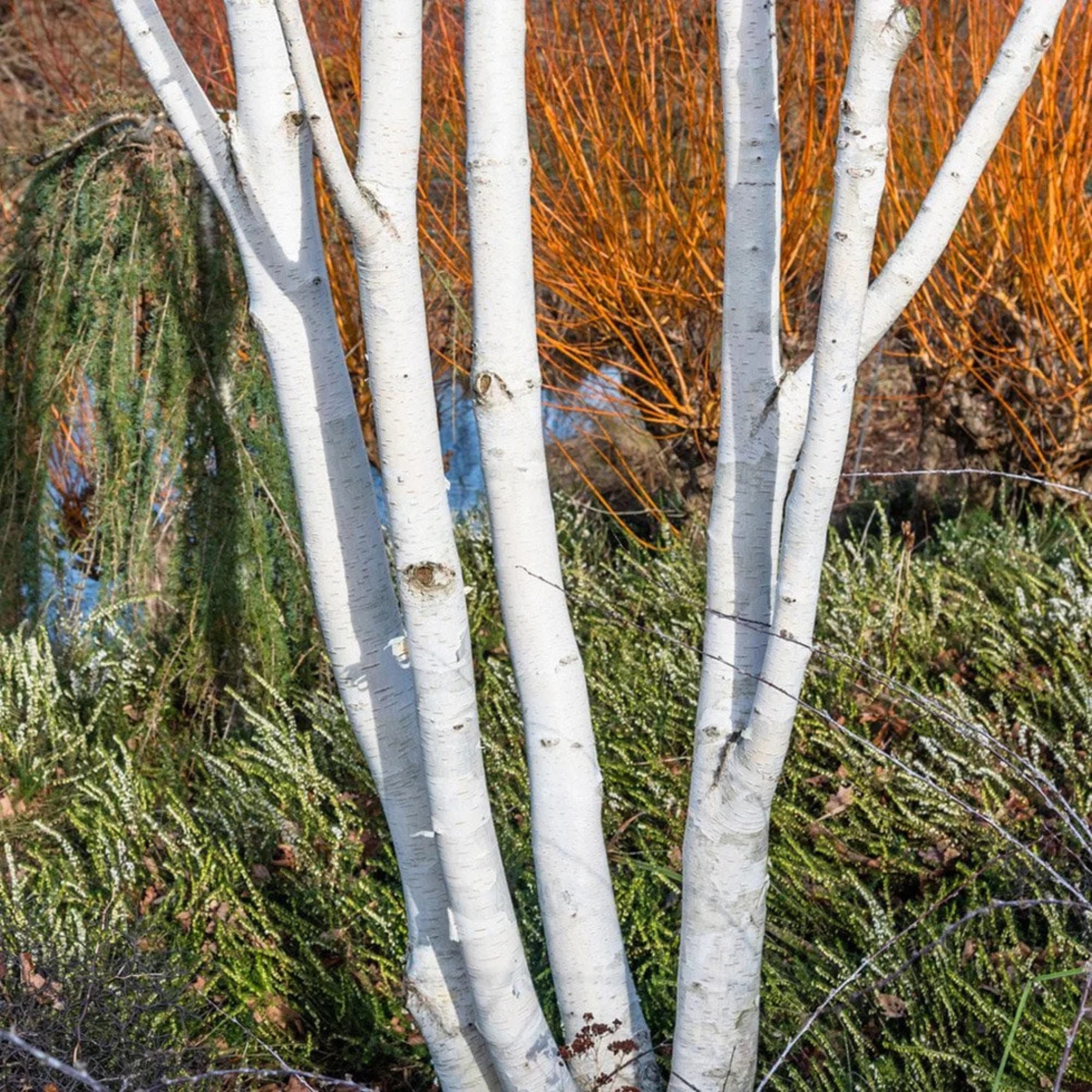
There's no questioning where the Paper Birch (Latin name Betula papyrifera) gets its name. You might have fond memories of peeling the white, papery bark from this deciduous tree as a child. As a tree, its wispy foliage makes quite a spectacle through the changing seasons, but owing to its slender shape and thin branches, the Paper Birch isn't a wise choice for privacy.
"While beautiful and fast-growing, paper birch trees have light, open foliage that offers little to no privacy even when mature," explains gardener Tony O'Neill, founder of Simplify Gardening.
Choose instead: He suggests Carpinus Betulus (otherwise known as Hornbeam) as a better alternative. "It has dense foliage, tolerates pruning well, and makes a great deciduous privacy screen." Hornbeam also has a relatively compact growth habit (it can easily be pruned or pollarded) and comes in dwarf and columnar varieties too, making it one of the best privacy trees for small backyards.

I'm Tony O'Neill, a gardening expert and best-selling author. I am an educator with a thriving YouTube channel that has 442,000 subscribers and receives over 1.4 million monthly views. Through my award-winning website, Simplify Gardening, I share my passion for gardening and sustainability. I've authored books including "Simplify Vegetable Gardening," "Composting Masterclass," and "Your First Vegetable Garden," empowering individuals to cultivate their own green spaces.
3. Redbud
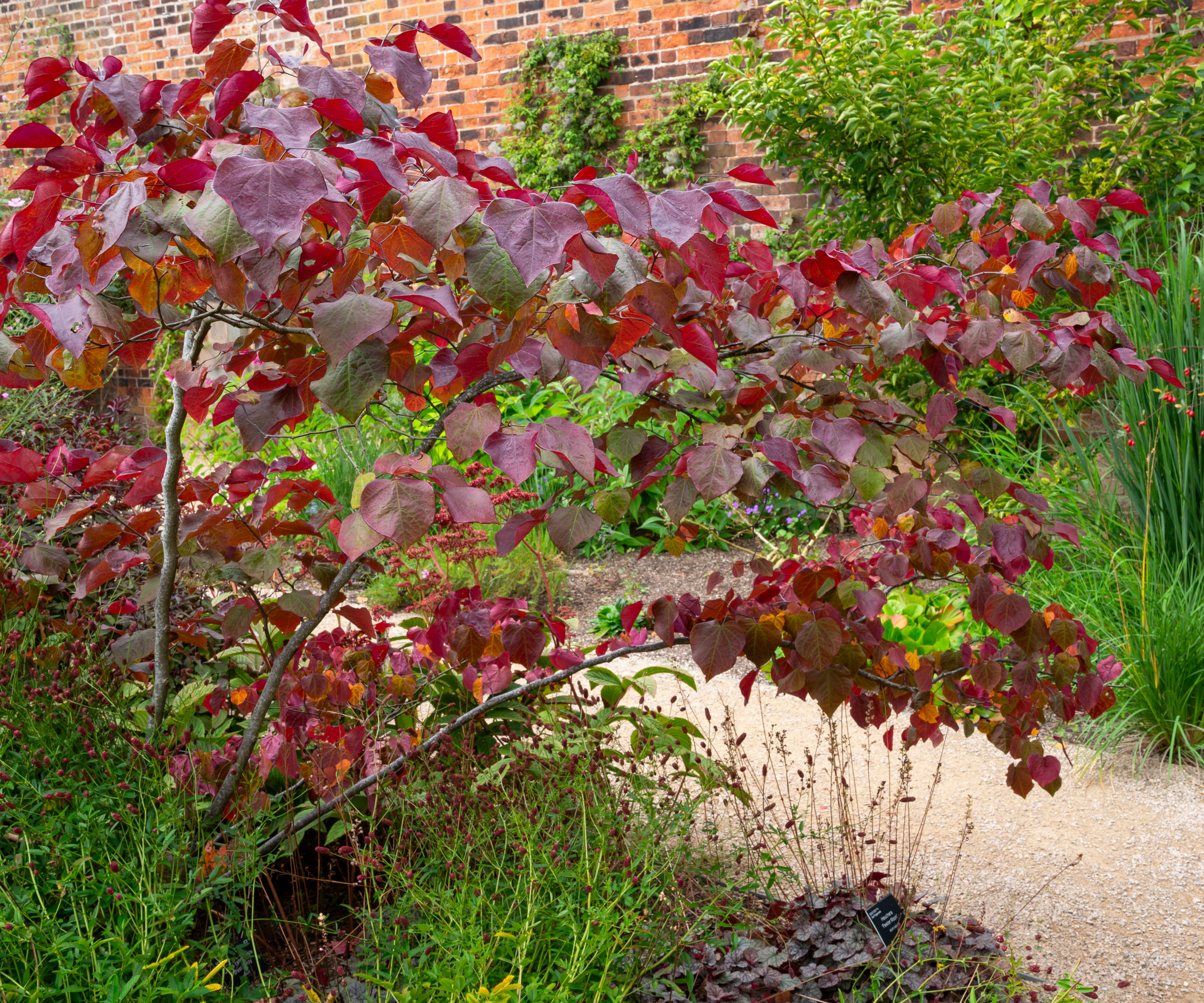
The Eastern Redbud (Cercis Canadensis) is a popular ornamental tree. One of the best trees for front yards, its vibrant pink flowers bloom in early spring, offering beautiful curb appeal. From a privacy point of view, however, the Redbud doesn't score well. "Redbuds have a lovely spring display but tend to have a spreading form and sparse branches — not ideal for forming a screen or blocking views," says Tony.
Choose instead: If you want a tree that offers a burst of color but with added privacy, why not try the Photinia x Fraseri "Red Robin" instead? Also known as Red Tip Photinia, it is one of the best fast-growing trees for privacy.
4. Star Magnolia
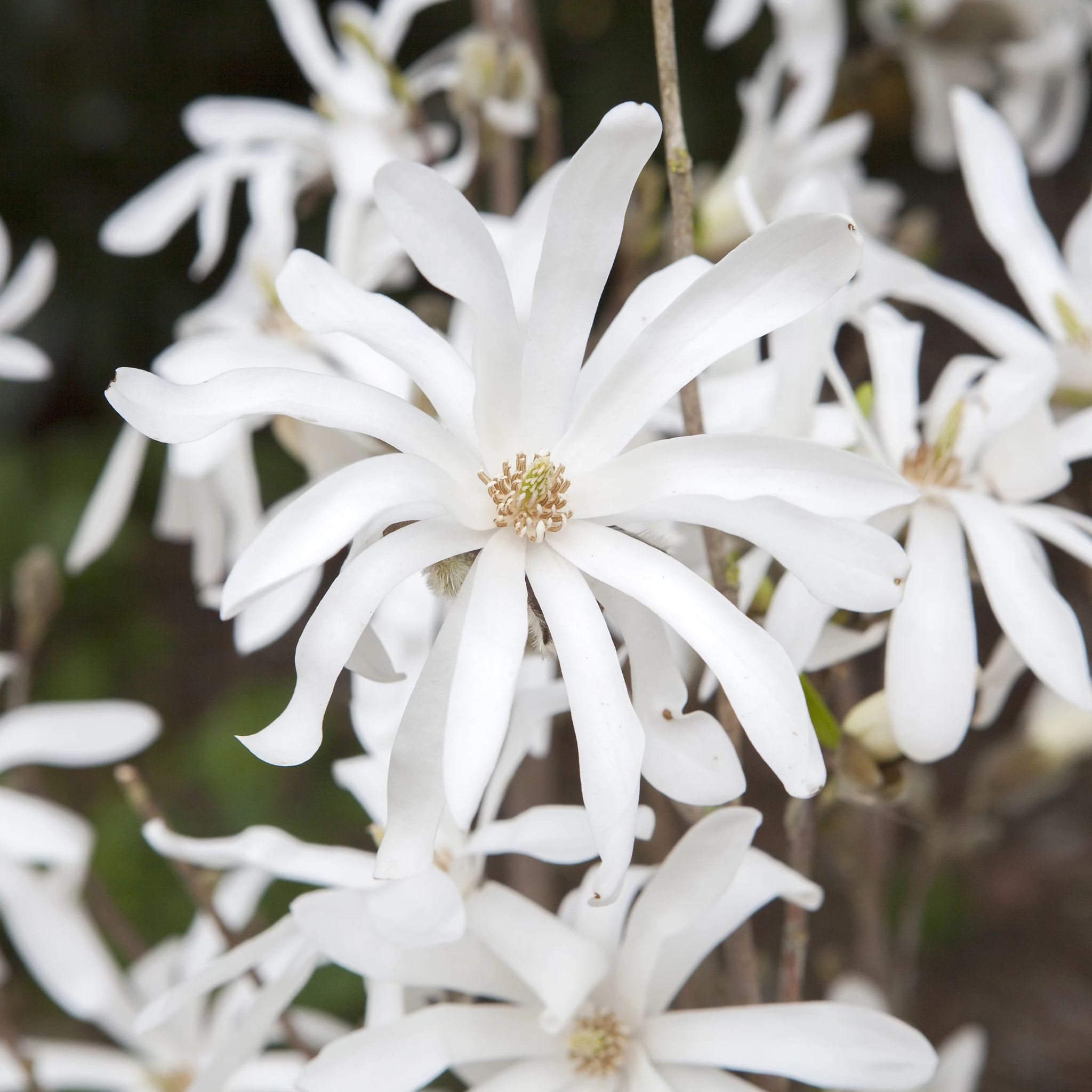
Magnolia Stellata is known for its beautiful, fragrant, star-shaped flowers (hence adopting the common name, Star Magnolia). These blooms make a great ornamental tree, but its compact size and seasonal leaf drop limit its usefulness as a privacy tree.
Choose instead: "Magnolia grandiflora makes a better alternative in warmer climates," says Tony. "It offers evergreen foliage and a more substantial screening effect."
5. Japanese Maple
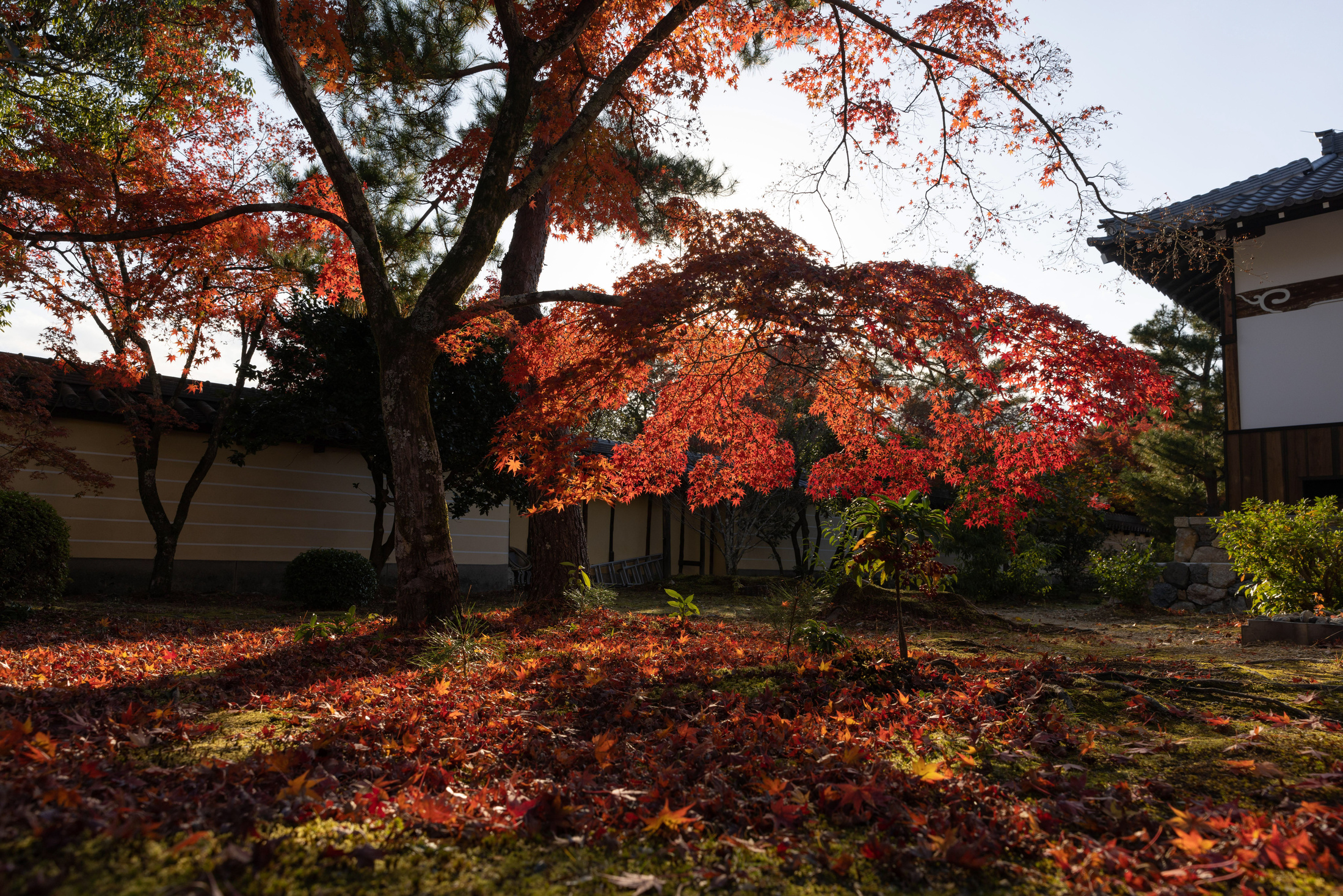
The Japanese Maple is widely considered the most popular type of maple tree. A brilliant choice for ornamental landscaping, its iconic red leaves transition through vibrant shades of brown, orange, and yellow in the fall. As Tony acknowledges, this tree is prized for its stunning foliage, "but they’re typically small, slow-growing, and have an open, airy canopy not great for screening".
Andy is quick to note this flaw, too. "The Japanese Maple's open canopy is more like a sheer curtain — lovely, but little help against nosy neighbors," he says, adding that it's also entirely bare in winter.
Choose instead: As an alternative, Tony suggests the Acer Campestre (Field Maple). "It can be clipped for hedging or left to grow naturally, providing more coverage and height," he says. It also makes a good pleached tree for privacy.
6. Olive
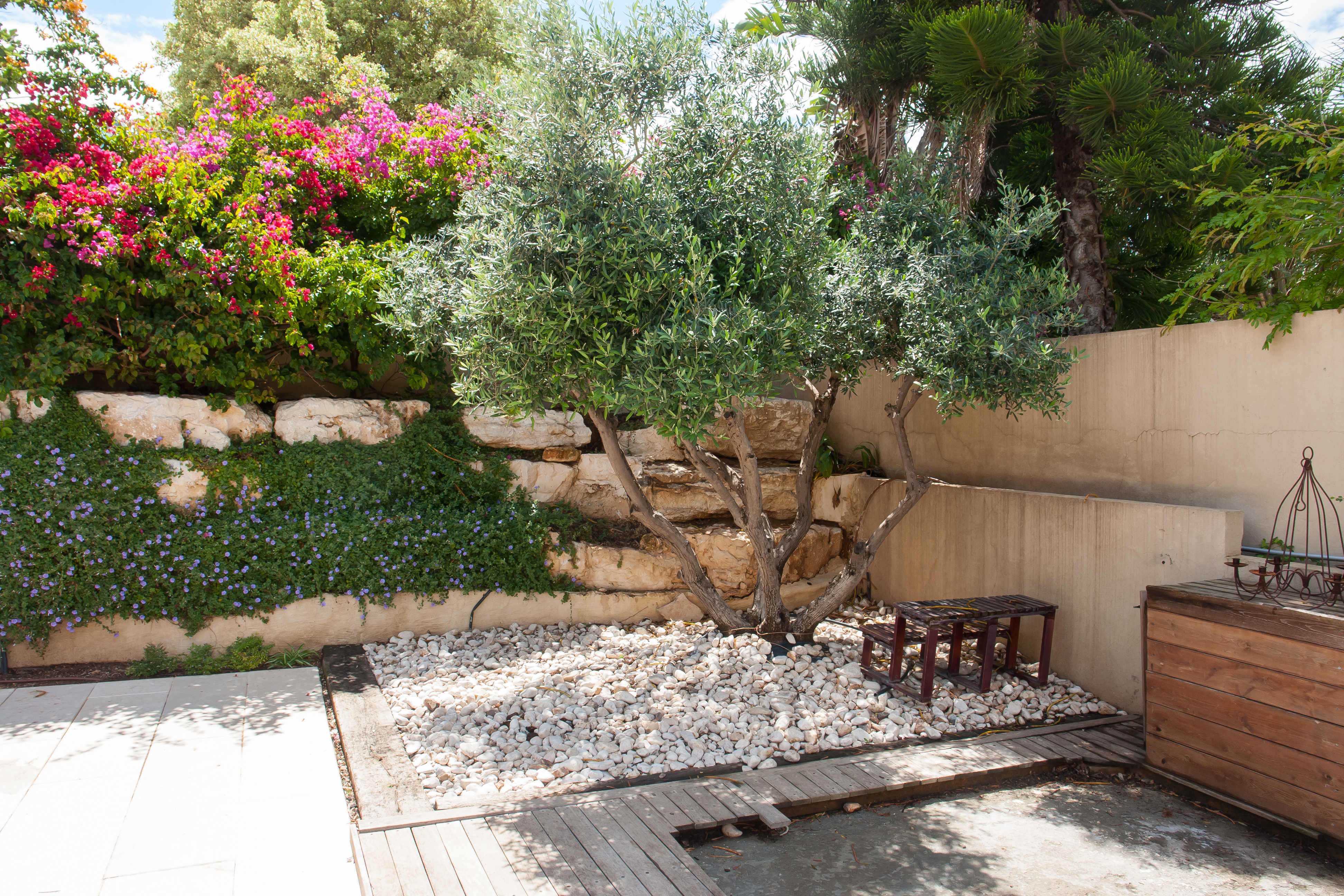
Olive trees are a chic choice for a contemporary garden or patio. Their light, almost silvery foliage, feels so calming and serene, especially against a backdrop of rustic brickwork or gray paving, but they're certainly not the sort of branches that work well for privacy.
"Olive trees are fashionable and drought-tolerant, but their gappy growth habit doesn’t lend itself to privacy planting," says Tony.
Choose instead: Instead, he suggests Portuguese Laurel (Prunus Lusitanica). "It grows densely and responds well to shaping, while still offering that Mediterranean look." Kaustubh Deo of Blooma Tree Experts also notes Laurel's fast-growing habits, but adds that they can become a "maintenance headache". "In fact, in some jurisdictions, Cherry Laurels or Portuguese Laurels can be considered invasive weeds of concern," he says.

Kaustubh exited a career in finance & private equity to acquire a small tree service contractor in Seattle called Blooma Tree Experts. Blooma Tree Experts provides high-quality tree care around the Greater Seattle Area and features an experienced team of ISA-Certified Arborists. As a result, Kaustubh is well-versed in all things small business acquisition & operations, as well as specifically to the tree care industry or tree care itself.
Trees have been offering humans shelter since the dawn of time, but not all of them work well as natural privacy screens. Deciduous trees, or ones with narrow forms or sparse foliage, are best avoided if privacy is a top priority. Instead, choose trees with dense canopies or cultivars that can be pruned, pollarded, or pleached to create the most effective veil for your outdoor space.

Lilith Hudson is a freelance writer and regular contributor to Livingetc. She holds an MA in Magazine Journalism from City, University of London, and has written for various titles including Homes & Gardens, House Beautiful, Advnture, the Saturday Times Magazine, Evening Standard, DJ Mag, Metro, and The Simple Things Magazine.
Prior to going freelance, Lilith was the News and Trends Editor at Livingetc. It was a role that helped her develop a keen eye for spotting all the latest micro-trends, interior hacks, and viral decor must-haves you need in your home. With a constant ear to the ground on the design scene, she's ahead of the curve when it comes to the latest color that's sweeping interiors or the hot new style to decorate our homes.
